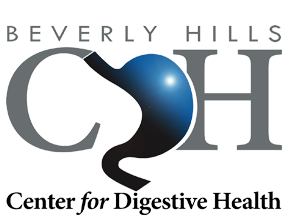Constipation Causes, Symptoms, and Treatment
BOOK APPOINTMENTConstipation is one of the most frequent gastrointestinal complaints in the U.S. Each year, over 2.5 million patients seek medical attention for constipation-related complaints. But what is constipation and how can you recognize the symptoms?
Causes
The American College of Gastroenterology defines constipation as “unsatisfactory defecation with either infrequent stools, difficult stool passage or both.” Constipation most often occurs due to changes in diet or routine, or due to inadequate intake of water or fiber. These factors slow down the digestive activities of the intestine. When stool moves slowly through the colon, too much water is absorbed from the stool and it becomes hard and dry, causing difficulty with defecation.
Chronic constipation may be due to a poor diet, dehydration, certain medications (such as antidepressants or prescription pain medications), stress, or the pressure of other activities that force an individual to delay using the bathroom despite a physical urge to do so.
Symptoms
Though a common misconception, the frequency of an individual’s bowel movements is not necessarily a positive indicator of constipation. The frequency or time between bowel movements ranges widely from person to person. Some healthy people have bowel movements several times a day while others only one to two times a week. Being constipated means an individual’s bowel movements require too much straining, involve a passage of small hard stools or leave the person with a sense that they have not completely emptied their bowels.
The most common indicators of constipation are:
- Difficult and painful bowel movements
- Bowel movements fewer than three times a week
- Feeling bloated or uncomfortable
- Feeling sluggish
- Abdominal pain
Treatment
Constipation typically responds well to changes in diet, routine, or medication. Your doctor may recommend the use of laxatives or stool softeners if changes in diet are insufficient. Most laxatives are safe for long-term use when used properly. Newer medications, which increase secretion of fluids into the intestine, are available only by prescription. They should be considered if constipation does not respond well to over-the-counter laxatives.
If a patient has been suffering from constipation for a prolonged period resulting in impacted stools, a tap water enemas may be required. Warm water is gently instilled into the rectum and sigmoid colon. When the water is emptied, the impacted stool is passed with it, bringing instant relief to the patient.
For most healthy individuals, a combination of an adequate intake of fluids, regular physical exercise, and a high-fiber diet may prevent constipation. However, if you are experiencing severe pain, blood in your stools, or constipation that lasts longer than three weeks, contact your healthcare provider right away.
Our Blogs
Pelvic Floor Dysfunction?
Back to BlogsPelvic floor dysfunction is the inability to relax and coordinate your pelvic floor muscles to allow for smooth defecation. Fortunately, there are treatments available, including biofeedback, medications, and physical therapy. Reclaim strength and comfort...
Cutting-Edge, Compassionate Care Can Help You Find Hemorrhoids Relief
Back to BlogsHemorrhoids can be debilitating and painful, but treatment is available. If you’re suffering from hemorrhoids, make an appointment at the Beverly Hills Center for Digestive Health. We offer cutting-edge, compassionate care to help you find hemorrhoids...
Find Relief, Embrace Comfort, Your Solution to Gas and Bloating
Back to BlogsIf you’re experiencing excessive gas and bloating, solutions are available at the Beverly Hills Center for Digestive Health. From medication to diet coaching to surgery for severe cases, we’re equipped to deal with a wide variety of gastrointestinal...
Call to Schedule
Our office is available to answer your questions and evaluate your symptoms.

Phone
(310) 855-0222
Fax: (949) 404-6467
Hours
Mon - Fri: 9am – 5pm
Sat - Sun: Closed